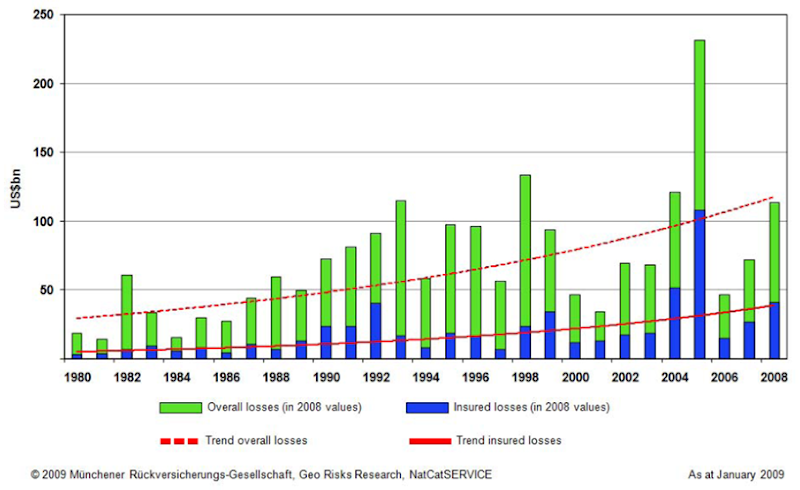Peak Humanitarian Aid
 Peak Humanitarian Aid: The period during which accelerating climate crises overwhelm the capacity of industrial civilization to handle them. Has this peak arrived, along with the others? The July 2010 flood catastrophe in Pakistan suggests that it has. The United Nations reports that the scale of the flood damage is larger than the combined damage from the 2004 tsunami, the 2005 earthquake in Kashmir, and the 2010 earthquake in Haiti. The UN has launched its largest-ever appeal for aid, and donors are falling short. The Sydney Morning Herald reports:
Peak Humanitarian Aid: The period during which accelerating climate crises overwhelm the capacity of industrial civilization to handle them. Has this peak arrived, along with the others? The July 2010 flood catastrophe in Pakistan suggests that it has. The United Nations reports that the scale of the flood damage is larger than the combined damage from the 2004 tsunami, the 2005 earthquake in Kashmir, and the 2010 earthquake in Haiti. The UN has launched its largest-ever appeal for aid, and donors are falling short. The Sydney Morning Herald reports:
Oxfam warned last month that “many” relief programs were in danger of being terminated because money had run out. The World Health Organisation and UNICEF revealed recently they may have to close some emergency operations and cut staff because of insufficient funding.
The situation remains grim, with 7 million refugees facing winter without homes, more than 10 million still receiving daily emergency assistance, and much of Southern Pakistan still underwater. Climate science and the insurance industry expect that extreme weather events, such as the unusually intense monsoon that caused the Pakistan flood, will occur with increasing frequency and magnitude. Even if industrial civilization hasn’t peaked yet due to resource depletion, it seems likely that Peak Humanitarian Aid will arrive anyway, when some critical threshold of disaster frequency or magnitude is crossed.  If the Pakistan relief effort turns out to be a failure, where will the next failure occur? Almost certainly in the poorest parts of the world; the poorest nations have the least capacity for adaptation and mitigation. In some regions, such as Sub-Saharan Africa and Mexico, slow-motion crises of drought and desertification are driving continuous internal migrations from rural to urban centers; there is no coordinated aid effort associated with this long-term refugee crisis. But even some developed nations are at risk. Desdemona imagines a scenario in which the wealthiest Australians begin to emigrate from the continent, as the accelerating cycle of drought and flood degrades food production below a sustainable level. How will the world respond to the next record-breaking, extreme-weather crisis? Desdemona thinks it won’t be long before we find out.
If the Pakistan relief effort turns out to be a failure, where will the next failure occur? Almost certainly in the poorest parts of the world; the poorest nations have the least capacity for adaptation and mitigation. In some regions, such as Sub-Saharan Africa and Mexico, slow-motion crises of drought and desertification are driving continuous internal migrations from rural to urban centers; there is no coordinated aid effort associated with this long-term refugee crisis. But even some developed nations are at risk. Desdemona imagines a scenario in which the wealthiest Australians begin to emigrate from the continent, as the accelerating cycle of drought and flood degrades food production below a sustainable level. How will the world respond to the next record-breaking, extreme-weather crisis? Desdemona thinks it won’t be long before we find out.
I call that spot! That empty spot in the middle – that's for my tent, it's MINE!!